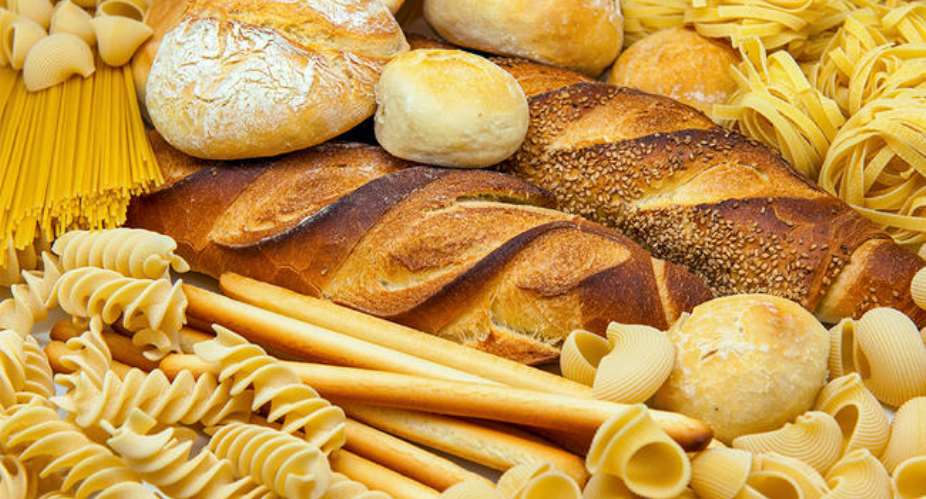Are you hankering for a hot roll? Do you want to bite into a bagel? Are you pining over pasta?
Farmers, scientists and nutritionists are weighing in on wheat products. And here’s why. Science continues to debunk the low-carbs diet for the general population. And here’s why.
The carbohydrate-insulin hypothesis is what fuels the low-carbs bandwagon. According to the low-carbs camp, a diet heavy in carbohydrates increases insulin production and that causes the body to decrease the burning of calories while holding onto fat. Therefore, they encourage more fat and protein.
But, the eat-carbs camp surmises that when dieters lose weight in the beginning, they usually gain it back and more. Like a yo-yo, weight goes up and down. Sidebar: Limiting processed sugar and refined flour and consuming whole grains instead is recommended by the promoters of carbohydrates. Therefore, they discourage more fat and protein.
A 2018 article on a high-quality randomized control trial in the Journal of the American Medical Association (JAMA) reported study participants lost around the same amount of weight whether following a low-carb or a low-fat diet.
A 2015 article by the National Institutes of Health reported “cutting dietary fat reduces body fat more than cutting carbs.” www.nih.gov/.
According to a 2003 article published in the British Medical Journal, long-term studies need to address whether a low-carb diet may lead to “osteoporosis, colon cancer, heart disease, kidney damage, and gout, as critics charge.”
A plethora of scientific, medical, and nutritional journals report on the benefits of low-carb diets for individual with diabetes, epilepsy, and other diseases. However, my information pertains to individuals without specific health conditions. So please be aware when you are reading articles. And research studies are not created equal. Diet studies can be affected by confounding factors and flaws.
Why do so many people hate on wheat? Diet books and several celebrities walloped wheat—and their opinion circled the planet. Gluten and wheat-free products popped up can be found in grocery stores and restaurants. No doubt, some individuals cannot tolerate the gluten found in wheat; however it’s now a fanatical fad like the low-carb diet.
What happened to wheat, the food foundation of civilization? Farmers, scientists and nutritionists are raising red flags. The industrial revolution processed it, refined it, and sold white fluffy flour for cheaper. And genetic modification changed it. The poor wheat kernel is experiencing an identity crisis. The wheat of today is not the same wheat as yesteryear. Where has all the stone-ground wheat gone?
What kind of carbohydrates are healthy choices? Unprocessed whole grains which are labeled complex carbohydrates. A whole grain contains three parts: germ, endosperm, and bran.
According to the Whole Grains Council, “Whole grains contain all three parts of the kernel. Refining normally removes the bran and the germ, leaving only the endosperm. Without the bran and germ, about 25% of a grain's protein is lost, and are greatly reduced in at least seventeen key nutrients.”www.wholegrainscouncil.org/.
The takeaway is the low-carb diet is still an unproven hypothesis in science. The takeaway is that eating whole grains is part of a healthy diet. The takeaway is that you can eat bread and pasta made from whole wheat flour in moderation (unless you are diagnosed with gluten-sensitivity).
Sometimes it seems like the further we travel from the ways of the olden days, we find an increase in food issues, digestive difficulties, and health conditions. Is this the price we pay for progress?
Well, I’m signing off to bake and bite into some bran muffins.
Melissa Martin, Ph.D, is an author, columnist, educator, and therapist. She lives in the USA. www.melissamartinchildrensauthor.com .





 SSNIT must be managed without gov’t interference – Austin Gamey
SSNIT must be managed without gov’t interference – Austin Gamey
 Ejisu by-election could go either way between NPP and independent candidate — Gl...
Ejisu by-election could go either way between NPP and independent candidate — Gl...
 We never asked ministers, DCEs to bring NPP apparatchiks for returning officer r...
We never asked ministers, DCEs to bring NPP apparatchiks for returning officer r...
 No one denigrated the commission when you appointed NDC sympathizers during your...
No one denigrated the commission when you appointed NDC sympathizers during your...
 Used cloth dealers protests over delayed Kumasi Central Market project
Used cloth dealers protests over delayed Kumasi Central Market project
 A/R: Kwadaso onion market traders refuse to relocate to new site
A/R: Kwadaso onion market traders refuse to relocate to new site
 Dumsor: Corn mill operators at Kaneshie market face financial crisis
Dumsor: Corn mill operators at Kaneshie market face financial crisis
 Jamestown fishermen seek support over destruction of canoes by Tuesday's heavy d...
Jamestown fishermen seek support over destruction of canoes by Tuesday's heavy d...
 Election 2024: EC to commence voter registration exercise on May 7
Election 2024: EC to commence voter registration exercise on May 7
 Western Region: GWL hopeful of restoration of water today in Sekondi-Takoradi
Western Region: GWL hopeful of restoration of water today in Sekondi-Takoradi
